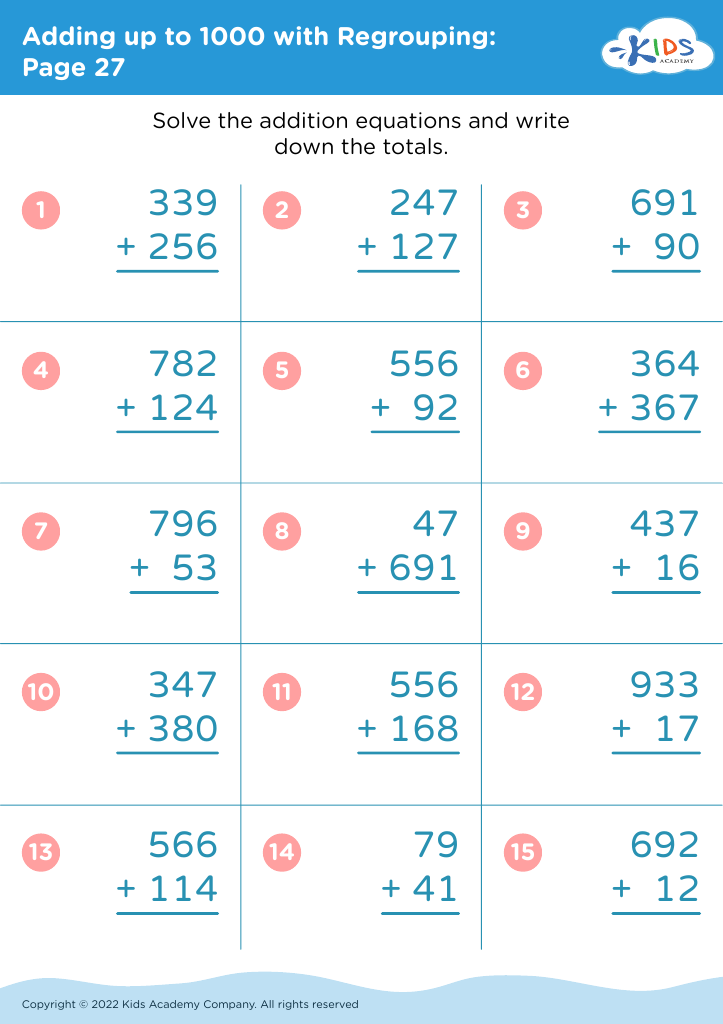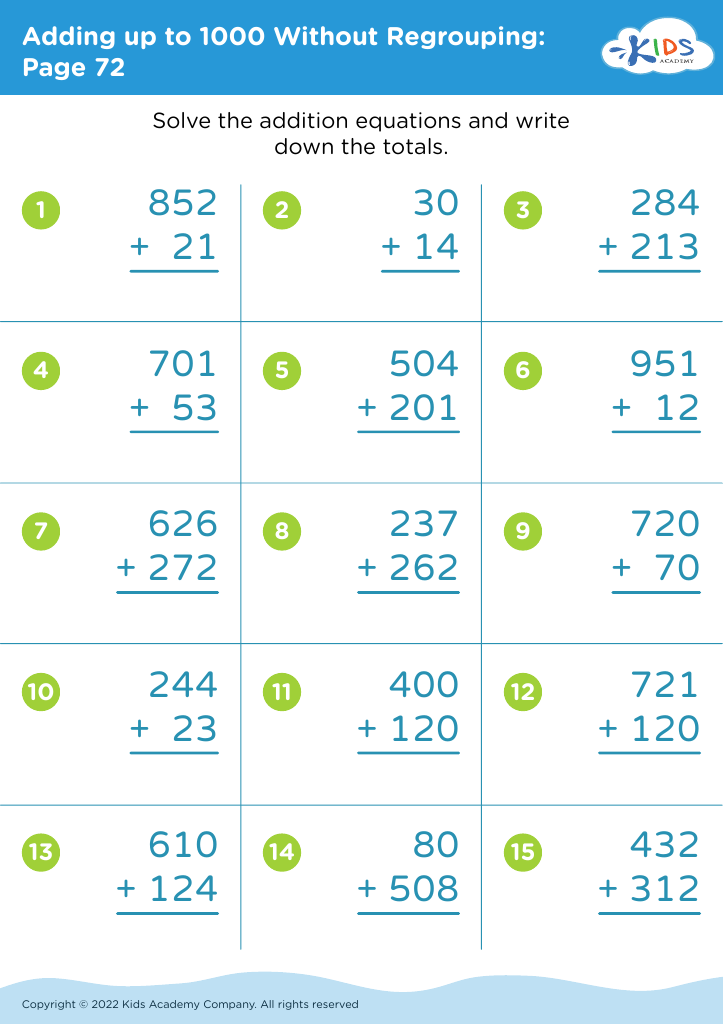Learn new vocabulary Adding up to 1000 Worksheets for Ages 3-8
3 filtered results
-
From - To
Unlock the power of language with our "Learn New Vocabulary" worksheets! Designed for children ages 3-8, this engaging resource enhances vocabulary skills while reinforcing math concepts of adding up to 1000. With a collection of 1000+ printable worksheets, kids will explore essential language terms related to numbers, shapes, and mathematical operations. Each activity is thoughtfully crafted to promote learning in a fun, interactive way, ensuring young learners develop confidence in their vocabulary and math abilities. Ideal for home or classroom settings, these printable worksheets pave the way for a deeper understanding of language and math, setting a foundation for future success. Start exploring today!
Learning new vocabulary is essential for children ages 3-8 because it serves as a foundational brick in their overall academic development and communication skills. At this stage, kids are developing critical thinking, social skills, and literacy, and a robust vocabulary enhances these areas significantly. When children learn new words, they gain the ability to express their thoughts, feelings, and ideas more clearly and effectively, fostering better interactions with others.
Additionally, a rich vocabulary contributes to improved reading comprehension. As children progress through school, a deeper understanding of language helps them grasp complex concepts in texts, which can boost their confidence and performance academically. Early exposure to varied vocabulary also makes it easier for kids to engage in discussions, encouraging curiosity and exploration.
Moreover, parents and teachers play a crucial role in creating a language-rich environment. Activities like reading together, playing word games, and encouraging storytelling can spark joy in learning new words. These experiences not only enhance children's knowledge but also build lasting bonds between adults and kids, making learning a shared adventure. Ultimately, focusing on vocabulary development sets children up for future success in school and in life, making it a vital endeavor for parents and educators alike.














